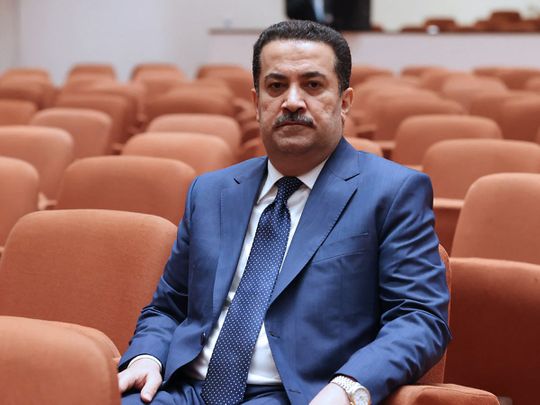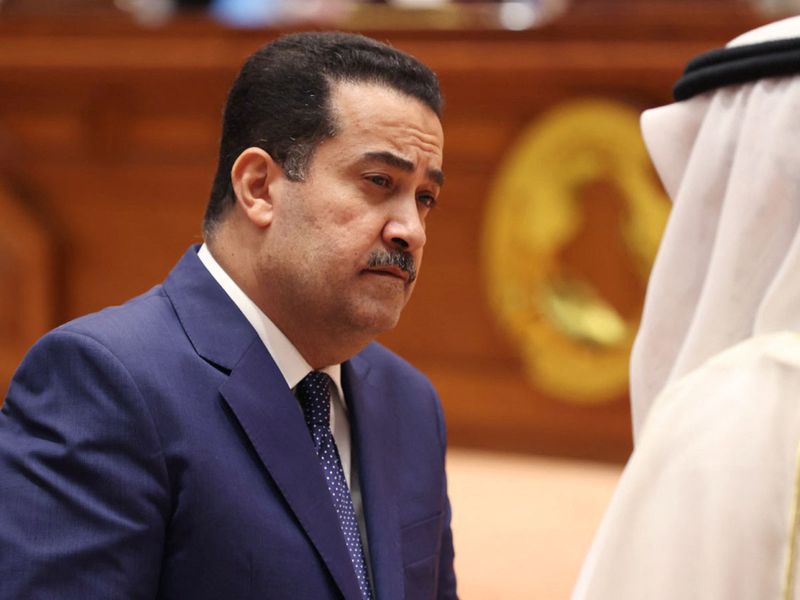
Iraq’s new president Abdul Latif Rashid has invited Mohammed Shia Al Sudani to form the new government.
The prime minister-designate, is the nominee of the largest parliamentary bloc known as the Coordination Framework — an alliance of various factions, to form a government.
Al Sudani, 52, has previously served as Iraq’s human rights minister as well as minister of labour and social affairs. He has 30 days to form a cabinet and present it to parliament for approval.
Who is the new prime minister-designate?
Born in southern Iraq in 1970, Al Sudani was just 10 when his father was executed during Saddam Hussein’s time on charges of belonging to Islamic Dawa Party.
An alumnus of the University of Baghdad, Al Sudani took active plunge in politics and post-2003 Iraq invasion, became the mayor of Amarah in south-eastern Iraq. He subsequently became the governor of Maysan Governorate.
From 2010 to 2018, Al Sudani served as the minister of human rights, labour and social affairs under two prime ministers — Nouri Al Maliki and Haider Al Abadi.
Surprisingly Al Sudani decided to leave the Dawa Party in 2020. As per political pundits, his departure from the party could be linked to his ambition for a future leadership role.
His name fist cropped up as a potential prime minister after Adil Abdul-Mahdi resigned from the top post in 2019 following public demonstrations.

Euphartes Movement
Al Sudani currently helms the Euphrates Movement that won three seats in the 2021 elections. Thereafter he joined the Shia Coordination Framework, a bloc opposed to the Sadrist Movement, led by the maveric cleric, Moqtada Al Sadr.
Although Al Sadr’s bloc emerged as the largest in parliament with 73 seats, all his legislators quit their seats recently to put pressure on his rivals to form a new government or call for new elections.
In the absence of the formidable Sadrist block, the Coordination Framework became the new majority.
The new prime minister-designate will be viewed with a degree of specticism, especially by the Sadrists who consider him to be a protégé of Nouri Al Maliki.
Al Sudani, who earned goodwill as an effective minister during his various stints, will have to go an extra mile to convince the Sadrist bloc that their political future and interests are going to be safe under him.
If elected, he also faces the prospect of a dysfunctional political system, a turbulent and somewhat unstable economy. His foreign policy positions will also be closely monitored.
Whether his past economic and political achievements can come to his rescue, remains to be seen. For now he does appear to be among the few ‘suitable’ prime ministerial candidates in Iraq.









